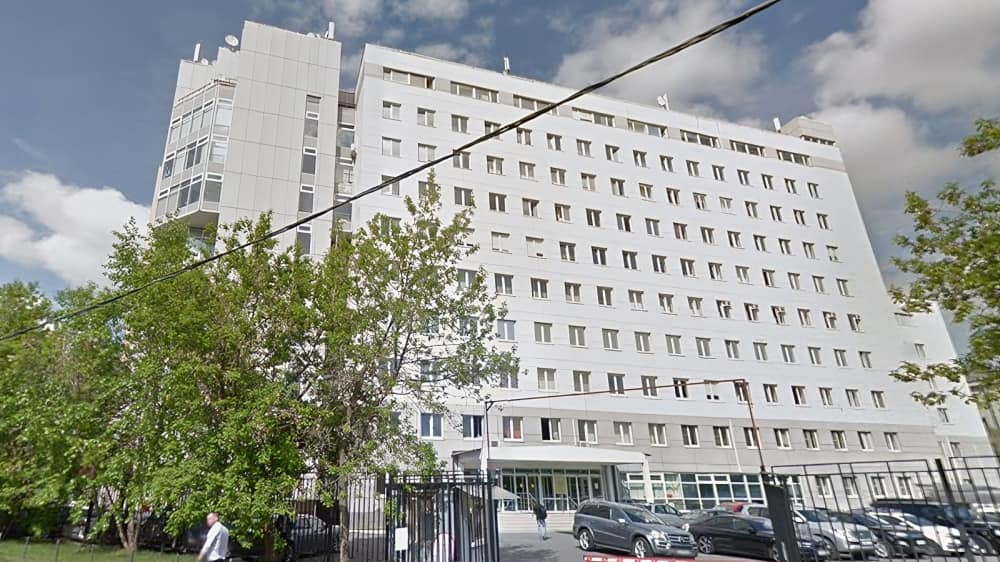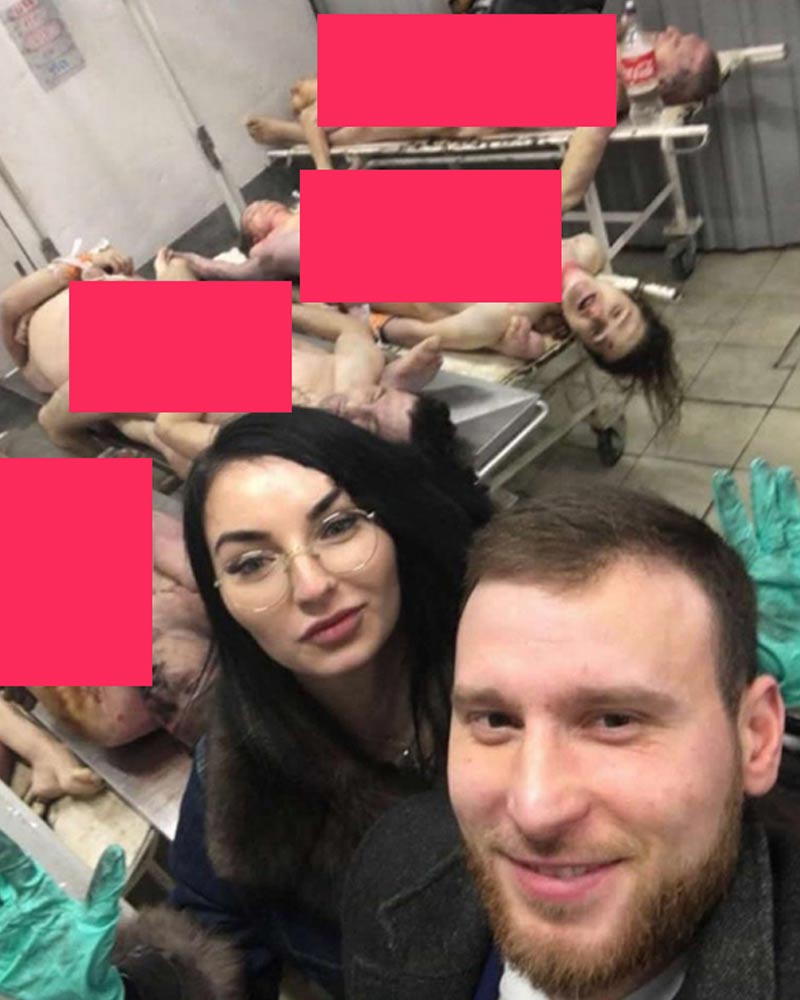In a place meant for silence and respect, a single selfie lit the fuse of a national scandal.
It began with a photograph that never should have existed: two Moscow investigators grinning in a morgue, posing before a row of exposed bodies as if the dead were props.
Within hours of appearing online, the image detonated across Russia, igniting outrage, embarrassment, and quickly escalated into one of Russia’s most disturbing police scandals of the year.
The photo, which captured more than a lapse in judgment, exposed a deeper cultural problem inside law enforcement, where the allure of social media can blur the line between duty and self-promotion.
In Russia, that line snapped, which resulted in the swift unraveling of two police careers.

The scandal erupted when two Moscow investigators, Vyacheslav Gorneev, head of the district’s criminal investigation department, and Tatyana Alexeevskaya, widely known on social media for her polished, fashion-driven posts, found themselves inside a state forensic facility, at Morgue No. 5 of Moscow Clinical Hospital No. 67 in the Shchukino district (район Щукино).
At the time. both investigators were working in the Shchukino district’s Criminal Investigation Department.
There, among the bodies of individuals who had died under violent or suspicious circumstances, lying uncovered on cold steel tables, smiling as if they were in a tourist spot instead of one of the most sensitive environments in law enforcement.
The image, unsettling and graphic, spread rapidly after Senior Lieutenant Detective Tatyana Alexeevskaya reportedly posted it on her social media page.
The contrast between her usual online image and this macabre scene was jarring, and locals didn’t hold back their fury once the photo surfaced. Some users called the officers “sick,” while others demanded psychiatric evaluation or worse, echoing a sense of moral breach that resonated across Russian social media.
Little do they know that the photo would later ignite into nationwide outrage.
Within hours it reached the attention of superiors inside the Ministry of Internal Affairs, triggering swift outrage and disciplinary action that would cost both officers their jobs.
As the story continues to ricochet across Russian media, it raises questions about professionalism, digital culture inside police forces, and how easily a single moment of vanity can unravel careers.
In a system already punctured by allegations of abuse and misconduct, this selfie did more than provoke disgust. It became a symbol of a deeper disconnect between duty and behavior, a reminder that the era of social media leaves little room for mistakes, especially for those entrusted with the dignity of the dead and the safety of the living.

What pushed them to take this selfie remains unclear, but local reporters suggest it began as a moment of vanity in a place where they mistakenly believed no one would question them.
Investigators who spoke anonymously to Moscow outlets say the morgue is a place senior detectives visit regularly when handling homicide and suspicious death cases. And at the time, Gorneev and Alexeevskaya had reportedly completed paperwork inside the facility, and instead of leaving, paused to take a photograph, interpreting the scene behind them as an edgy backdrop rather than the resting place of human remains.
It was a lapse in judgment, mixed with entitlement, that spiraled the moment it hit the internet.
The consequences were immediate.
The Ministry of Internal Affairs issued a statement saying both officers had committed an act that "defames the honor of an interior affairs official."
Their dismissals were followed by further firings, including at least three senior officials deemed responsible for supervisory failures.
For Gorneev, the fallout cut far deeper than a simple dismissal.
His name had lingered on the edges of controversy for years, repeatedly tied to allegations of drug-planting operations, with claims voiced by opposition politician Dmitry Gudkov and echoed by activists who say such tactics remain shamefully common in certain Moscow districts.
Journalist Andrei Yevgenyev and student Nikita Mikheyenko had both accused the very same police unit of framing them, prompting an abuse-of-power inquiry by the Investigative Committee. Though the investigation eventually stalled without naming a single defendant, the accusations never truly faded. The morgue selfie didn’t just cost Gorneev his position, it also revived every unresolved suspicion about his conduct, giving critics fresh ammunition and a disturbing image to anchor their outrage.

As for Alexeevskaya, the scandal unfolded with a different kind of tragedy.
Her social media presence, built on sleek fashion portraits and captions celebrating femininity and self-assurance, revealed someone who put great care into crafting a public identity. That carefully maintained persona collided violently with the grim nature of her work the moment the morgue photo surfaced. What may have felt like a moment of playful rebellion or misguided bravado instantly became a national spectacle.
Colleagues describe her as ambitious and eager to rise within the ranks, someone who blended professionalism with an influencer’s touch, until a single lapse in judgment turned her curated image into the center of a public reckoning.
For both officers, the consequences were swift and unforgiving.
The photograph didn’t just expose a breach of ethics; it resurfaced old scandals, amplified doubts about integrity, and attached a lurid, unforgettable visual to reputations already under strain. In less than a day, whatever control they once held over their public images was gone, replaced by a viral reminder of how quickly a moment of vanity can undo entire careers.
